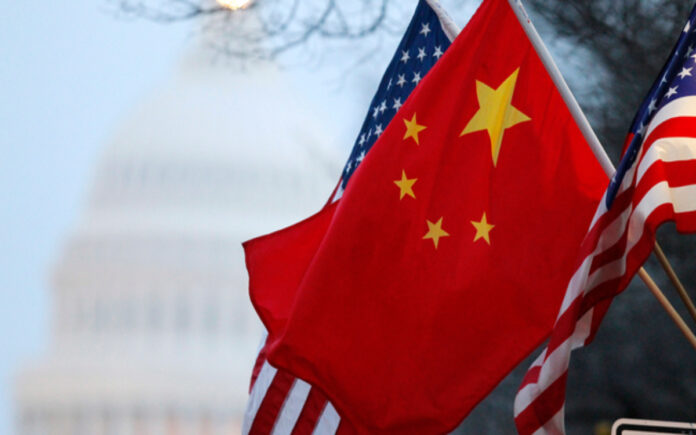Beijing/Washing: Yao, a 25-year-old biology student, found her hopes of pursuing a PhD in the United States deferred after her university slashed funding. Her experience reflects a broader shift among Chinese students increasingly looking beyond the U.S. for academic opportunities amid a hostile policy environment.
Visa revocations and funding cuts under the administration of former U.S. President Donald Trump have fueled uncertainty and stress for international students, particularly those from China. These challenges have been exacerbated by intensifying U.S.-China tensions, including an ongoing trade war and growing suspicions toward Chinese nationals.
“I used to think politics was far away from me, but this year I really felt the impact of politics on international students,” said Yao, who is currently based in Chicago and requested anonymity regarding her university.
For 15 consecutive years, China was the leading source of international students in the United States—until India overtook the position in 2023. According to Open Doors data, Chinese students contributed approximately $14.3 billion to the U.S. economy last year. However, the perception of Chinese students within the U.S. has shifted, with some lawmakers and officials portraying them as security threats aligned with Beijing’s interests.
Fifteen Chinese students interviewed by Reuters, including eight currently residing in the U.S., described heightened concerns over safety and affordability. Many are reconsidering their American aspirations. Since Trump’s return to the White House, over 4,700 Chinese students have reportedly been removed from the U.S. immigration database, increasing their risk of deportation. Chinese nationals made up 14% of 327 visa revocation reports collected by the American Immigration Lawyers Association.
Political Scrutiny and Legislative Pushback
Recent actions by U.S. lawmakers have intensified scrutiny of Chinese students. The House Select Committee on China recently demanded that six universities disclose their policies on Chinese student enrollment in advanced STEM programs and any involvement in federally funded research.
Committee Chairman John Moolenaar asserted that America’s student visa system has become “a Trojan horse for Beijing,” allegedly enabling access to top research institutions and posing national security concerns.
In response, China’s foreign ministry condemned the measures, urging Washington to “stop brandishing national security as a false pretext” for discriminatory practices targeting its students.
Republican lawmakers have proposed legislation—dubbed the “Stop Chinese Communist Prying by Vindicating Intellectual Safeguards in Academia Act”—to suspend student visas for Chinese nationals. The Committee of 100, a U.S.-based nonprofit of prominent Chinese Americans, criticized the bill as a betrayal of American ideals, warning it would harm U.S. leadership in science and innovation.
Professor Chen Yiran of Duke University refuted the notion that Chinese students return home to aid Beijing’s strategic ambitions.
“Most of them still want to stay in the U.S.,” Chen said. “They’re from middle-class families, they pay the millions (in yuan) for these few years, they want to get the investment back.”
Rising Interest in Alternatives
Amid the turbulence, international institutions outside the U.S. are reporting increased attention from Chinese applicants. Summer Wu, Greater China country manager at Italy’s Bocconi University, noted a surge in inquiries.
“Many students said because of (the political situation), they’re looking more at other countries, because they don’t know what will happen if they go to the U.S.,” she explained.
Chinese universities, bolstered by rising global rankings and expanded research funding, are also becoming more attractive. Pippa Ebel, an analyst with the UK-based Higher Education Policy Institute (HEPI), highlighted this growing competitiveness in her report on Chinese students.
While the United States remains the most-searched study destination on Keystone Education Group’s platforms, interest has declined by 5% since Trump announced additional tariffs. Searches for U.S.-based doctoral programs alone dropped by 12%.
Also Read | Patrick Crusius Sentenced to Life for Deadly Texas Walmart Shooting
Trump’s latest round of tariffs—up to 145%—targets $400 billion in Chinese exports, further straining China’s already slowing economy.
“China may be more sensitive to shifts in economic conditions and international policies … affecting household budgets and the overall affordability of pursuing a U.S. education,” said Mark Bennett, insights director at Keystone.
In contrast, destinations like Hong Kong have become more appealing due to visa policies that allow graduates to stay and work. The Chinese University of Hong Kong confirmed a spike in student interest.
Also Read | Pope Francis’ Impact on Women in the Vatican: Progress or Missed Opportunities?
Li, who spent three years studying in New York, ultimately opted out of the long and uncertain U.S. green card process. She relocated to Hong Kong to pursue graduate studies and a professional career.
“When I realised that there could be other possibilities in my life, I was not so frustrated with what I have now,” Li shared.



